
A central figure in the avant-garde and experimental music scene in New York City for over 30 years, Elliott Sharp has released well-over 100 hundred recordings ranging from orchestral music to blues, jazz, noise, no wave rock, and techno music. He leads the projects Carbon and Orchestra Carbon, Tectonics, and Terraplane and has pioneered ways of applying fractal geometry, chaos theory, and genetic metaphors to musical composition and interaction.

Elliott Sharp / Michiel Braam - play Thelonious Monk, Vooruit, Gent, 29/01/2008 Photo Bruno Bollaert
Collaboration is a central idea in Sharp's Poetics, so we can only mention a few people: they have included Radio-Sinfonie Frankfurt; pop singer Debbie Harry; Ensemble Modern; Qawwali singer Nusrat Fateh Ali Khan; Kronos String Quartet; Ensemble Resonanz; cello innovator Frances Marie Uitti; JACK Quartet, Hilary Hahn, Zeitkratzer; blues legends Hubert Sumlin and Pops Staples; pipa virtuoso Min-Xiao Feng; jazz greats Jack deJohnette, Oliver Lake, and Sonny Sharrock; multimedia artists Christian Marclay and Pierre Huyghe; Bachir Attar, leader of the Master Musicians Of Jajouka.

Elliott Sharp's Bootstrappers, Bowery Poetry Club, December 17, 200
Sharp is a 2014 Guggenheim Fellow, and a 2014 Fellow at Parson's Center for Transformative Media. He received the 2015 Berlin Prize in Musical Composition from the American Academy in Berlin. He has composed scores for feature films and documentaries; created sound-design for interstitials on The Sundance Channel, MTV and Bravo networks; and has presented numerous sound installations in art galleries and museums. He is the subject of a recent documentary "Doing The Don't" by filmmaker Bert Shapiro.

Jacques Demierre, Charlotte Hug, Urs Leimgruber, Elliott Sharp, The Stone, June 8, 2010
How's your musical routine practice?
I have no regular practice routine but I usually have a guitar or clarinet nearby when I'm working at the desk in my studio, whether composing or editing/mixing. When I need a break, I'll pick up an instrument to noodle on or even to do a little work on a specific style, whether Django Reinhardt or Blind Lemon Jefferson; Lester Young or Thelonious Monk. The purpose is not to have a goal but to pop out of one level of activity into another. However, when I compose music for one of my own ensembles, I will always set aside a window of time before a recording session or concert so that I may learn the parts that I've written for the instrument that I'll be playing them on.
What's the relevance of technique in music, in your opinion?
Technique may be defined as the set of skills necessary to properly realize the music. Of course, this varies widely with different cultural and stylistic approaches. Technique may be self-defined when the music is very personal or idiosyncratic. Sometimes the perfect sound is made by dragging a spring across a string or hitting it with a piece of wood. But some of the music I compose for myself to play requires very specialized techniques that require lots of work to master - it's the only way to get those sounds. Likewise, there are sonic manifestations in my music for piano, string quartet, or other instrumentation that demand players who can take anything written, even music deemed "impossible" and turn it into sound. This is usually dependent on having achieved quite a bit of traditional or 'classical' technique.
Why do you need music? Can we live without music?
Music for me translates the undefinable into the sonic spectrum where it acts to create psycho-acoustic chemical change. The realm of the "undefinable" might be a range of emotions, it might be abstractions about mathematical functions, it might just be a melody or even just a sound heard in the Inner Ear. But to hear the manifestation of these elements in sound is like nothing else in the universe. I certainly cannot live without music, both hearing it and making it. Others can and while I don't want to pass any kind of judgement, I wonder what kind of lives they live.
What are the challenges and benefits of today's digital music scene?
Every new technology both adds and eliminates potentials. What do we seek? What do we need? What do we miss? I very much like what digital technology has done to democratize the composition, production, and dissemination of music of a very high technical quality. Of course, anyone could always make music by singing or whistling or clapping. But now, people may realize almost anything they can imagine, far beyond their own musicianship on a particular instrument, and allow others to hear it as well. The downside for myself and many other musicians is the devaluation of recorded work. When music can be so easily created and reproduced, it is no longer thought of as being special and worthwhile of being recompensed.
However, one unexpected upside of the digital music revolution is the revaluation of live concerts. More people now understand and appreciate the wonderful feeling of being part of that unique feedback loop between musicians and audience, especially in an intimate concert setting. At the moment, digital cannot reproduce the "smell" - the pheromonal handshaking that takes place when human listeners take in and respond to sound waves made by other humans in a space.
Where are your roots? What are your secret influences?
None of this is very secret as I've spoken and written about this quite a bit! As a child I loved science-fiction, physics and math, biology, and music that was dark and fast - that continues to this day. In Disney's Fantasia, Stravinsky's Rite of Spring (Sacre du Printemps) haunted me. Abstract painting but also Breughel and Bosch restructured my DNA. When I first heard The Yardbirds and The Rolling Stones and from them to the original blues of Howlin' Wolf, Muddy Waters, the Kings, Robert Johnson et al, I was hooked for life. Epic literature took over my world asachild starting with Moby Dick and Asimov and then as a teen finding Pynchon's V , William Gaddis, and the Beats. Movies & TV: again sci-fi (as much for the soundtracks), The Twilight Zone and The Outer Limits, The Day The Earth Stood Still (with Bernard Herrmann's music!) As an infant, my grandmother would beat pots and pans to try to get me to eat - perhaps someone could trace a connection.
What would you enjoy most in an art work?
It's not at all about enjoyment of the work but really, how the work affects one. There is a lot of very pleasant music being composed and performed and while I may enjoy it if it crosses my path, it's ultimately forgettable, not life-changing. True art has the power to effect chemical change, "consciousness expansion", whether it's triggered acoustically, visually, or in some other mode. This type of art might be a horror or it might be transcendentally beautiful. What is important about it is its ability to effect deep transformation, to cause you to perceive the world differently, to feel something not felt before.
Tell me one impossible project do you like to realize?
Sonome is a project conceived in the 1990's that seemed to be impossible to realize. The principle is that of a software audio processor that allows any visitor to upload a short audio sample of a few seconds length that is a signature sound of that person or their location. Sonome renders the sounds and sequences into one seamless flow that is streamed online so that anyone may listen. The individual sounds are heard for long enough so that their sonic identity is clear. As each sound plays, it's location on the globe is indicated through a highlight or illumination. I believe that current state of web technology,especially as regards audio streaming and upload, would make this project no longer impossible.
Another impossible project is Relay. Relay is a public participation composition lasting one hour. It begins at 1200 GMT with participants making a sound of 3 seconds duration on cue from a website clock or GPS that sequences the action according to geographical distance from the zero-point in a westward direction. In this way, each location is given the starting point for their action. The sonic actions are manifest around the globe providing a continuously changing sound.
What do you recall about your playing learning process?
Practicing piano as a child was torture for me. Even though I understood intellectually the need to train to be able to play what I wanted (for example Liszt's Hungarian Rhapsody Nr. 2) I still hated the process and being "on the clock". I conflate my piano studies with the development of asthma which nearly cost me my life at age 8, not long after performing the Liszt at Carnegie Recital Hall as part of a concert by the students of my teacher. The piano studies were now finished! After leaving hospital and recovering sufficiently, I began to learn the clarinet. Many of the same issues remained but I was interested in following through with it and developed good "classical" skills for wind ensemble and orchestra. In 1968 I decided to focus on guitar as my main listening was now electric rock bands and the blues originators that influenced them.
When I heard Jimi Hendrix, he became a huge influence for me and I wanted to be able to channel his music, whatever labor it would take. My father had a cheap and unplayable guitar that I would pick at in a most unsatisfying way and so with money saved from after-school jobs, I purchased an inexpensive electric guitar and amplifier. I had been designing and building effects boxes (sometimes tracing out the circuits and copying commercial units) and found that hooking up some pedals to create feedback and other noise allowed me to make music that instantly transported me to a different dimension. This was incredibly inspiring and a huge impetus for me to set out to properly learn guitar: fingerings for scales and chords, stylistic techniques from blues and jazz. I became very disciplined in my practice and always had guitar in hand when I wasn't at work or in school, sometimes practicing 14 or more hours in a day.
A digression: in high school, our band director, Al Renino, would tell us about "aleatoric music", a common term in the mid-1960's. He would do "conductions" (very similar to what Butch Morris and others developed later) using hand signals and having the players use extended techniques. I liked this much more than the typical school repertoire and I asked him in September '68 if I could bring my guitar, amp, and effects to class for one of these sessions. He was absolutely horrified at the idea and told me that he did not consider the electric guitar a "real" instrument. His feelings extended to the saxophones as well; he called them "bastard instruments."
Tell me one musical work which has provoked a change in your music.
There are so many that it's difficult to choose just one. Reading the lengthy NY Times obituary of John Coltrane at his death in 1967 provoked my curiosity and I asked a friend if he knew the music. He replied that he thought his father had some Coltrane records, and indeed he did. We put on Chasin' The Trane from Live At The Village Vanguard and I was absolutely devastated: both with joy at the sounds and with pain at the realization of the loss of this amazing artist. This set me on a path to jazz.
As a young reader, I was obsessed with science fiction and sometimes tried to imagine what sci-fi music might be. During the summer of 1968 when I was 17, I had a National Science Foundation grant to be a "junior scientist" at Carnegie-Mellon University. I obtained a midnight-4am DJ slot on the school station, WRCT, and loved to dig into the library to feed my appetite for new sounds. Hearing the Nonesuch release of Electroacoustic Music by Iannis Xenakis was both a revelation and a revolution in my hearing, allowing me to embrace an enlarged spectrum of noise of all flavors into my definition of music. It was about as close as I could imagine to being the embodiment of a sci-fi sound.
What is your relationship with other art disciplines?
Music composition for me always exists in a feedback loop with the disciplines aforementioned as well as with new movements in philosophy and scientific discovery and with the manifestations of our lives and realities: weather, news, political and economic movements. Of course, the art can exist as a pure solipsistic abstraction and I do believe that the creative impulse starts in that way but ultimately, it needs be buffered and affected by how we as creatures operate in a dynamic relationship with the processes apparent in the universe. Sometimes, these extra-musical entities provide general inspiration. Taking in specific works may actually be very discrete catalysts to creating a piece based on the work: expansion,re-framing, translation.
How do you feel listening to your own music?
Listening to my music is sometimes quite difficult. When I'm in the middle of composing, recording, and mixing, I'm listening constantly to the project at hand, repetitively and obsessively on a very detailed level, inhabiting the work. Once it's finished, I'll listen again in mastering and to doublecheck the final output. But once the work is released as a CD, I have no real desire to listen to it as I feel my part of the process is now finished. If I listen, I may very well become hyper-critical. However, when enough time has elapsed, I may then audition a previous recording and be able to appreciate it for what it was at the time that it was created. There is a profound difference when I'm listening to an ensemble perform "live" a composed work of mine as opposed to a recording that I played on. In that situation, I attempt to listen as if I've never heard the work before, trying to hear it with fresh and open ears, hoping that it will have the transformative effect that was manifest in my Inner Ear when creating the work.
What instruments and tools do you use?
The main tool is my Inner Ear, that manifestation of abstraction that may output as "music". To get from the Inner Ear to sound requires more physical tools. I compose music in notation using the software Sibelius. My graphic scores start out as notation in Sibelius which are then processed in Photoshop, GIMP, and Graphic Converter. For audio generation, production, recording, editing, and mastering, I use ProTools, Ableton Live, and Peak as well as various plug-ins. For physical instruments, there are a number of families of instruments residing in my studio which may also find their way into performances:
a. Guitars, both electric and acoustic, as well as variations: extended-range 8-strings, resonators, fretless guitars, lap and pedal steel, electric sitar, mandocello, mandolins, basses.
b. Single-reed instruments: Bb clarinet, bass clarinet, Eb soprano clarinet; soprano, alto, and tenor saxophones.
c. Miscellaneous instruments including viola, cello, trombone, accordion.
d. Electronics: Korg MS20 analog synth, Buchla Thunder (a controller though that word does not do justice to the incredible possibilities that Thunder unlocks), ring modulators, delay pedals, distortion units, pitch shifters, keyboards.
e. Invented and self-built instruments: violinoid, slabs, pantars, hammerpan.
f. Non-Western instruments including zithers, baglama, tzourna, mizwij, transverse flutes.
What projects are you working on now and what does the future hold?
At the moment I'm immersed in finishing a book to be titled Pursuing The Ir/Rational. It's a mix of music theory, cultural criticism, and autobiography. I've been working on the individual texts for years. Now it's a question of polishing them up, adding some connective passages, and being ruthless with my editing. Also on the front burner is my opera Substance about the philosophy and life of Baruch Spinoza. This is in the research and development stage: gathering ideas, making music and text sketches. It will require a commission to reach the next phase, that of full composition, as this requires the devotion of a great amount of time and energy.
In the works is a chamber orchestra piece Tesserae which may also be seen as 31 simultaneous solos. Tesserae could be played with all of the parts or just selected ones. Finally, there are two upcoming recording projects: the new Aggregat Quintet record for Clean Feed and an album for Enja Yellowbird that might be characterized as psychedelic funk. What does the future hold? Can I or anyone say? I try to provide for my family and find time to compose, record, and perform. I have some years of living comfortably and some years of great economic difficulty - there's no telling what this next period will be. I do know that one's private life is inextricably linked to forces beyond one's control. One may strategize but ultimately one must ride the wave.
Port Bou: Fragment
Selected Discography
Solo
Octal Book Three (2014) for solo 8-string guitarbass
The Yahoos Trilogy (2013)
Octal Book Two (2010)
Tectonics – Abstraction Distraction (2010)
The Yahoos Trilogy (2013)
Octal Book Two (2010)
Tectonics – Abstraction Distraction (2010)
Elliott Sharp live at Jazz Festival in Saalfelden, (2009)
Concert in Dachau (2008)
Octal Book One (2008)
Solo Beijing (2007)
Sharp? Monk? Sharp! Monk! (2006)
Octal Book One (2008)
Solo Beijing (2007)
Sharp? Monk? Sharp! Monk! (2006)
Quadrature (2005)
Velocity of Hue (2004)
Tectonics – Errata (1999)
Tectonics – Field and Stream (1997)
Velocity of Hue (2004)
Tectonics – Errata (1999)
Tectonics – Field and Stream (1997)
Sferics (1996)
Tectonics (1995)
Westwerk (1992)
K!L!A!V! (1990)
Tectonics (1995)
Westwerk (1992)
K!L!A!V! (1990)
Looppool (1988)
Rhythms and Blues (1980)
Resonance (1979)
Rhythms and Blues (1980)
Resonance (1979)
Leader
War Zones (2008)
Radio Hyper-Yahoo (2004)
with Tracie Morris, Eric Bogosian, Sim Cain, Maggie Estep,
Steve Buscemi, Lisa Lowell, Jack Womack,
Eszter Balint, Edwin Torres, Eric Mingus, Steve Piccolo, Gak Sato
Radio Hyper-Yahoo (2004)
with Tracie Morris, Eric Bogosian, Sim Cain, Maggie Estep,
Steve Buscemi, Lisa Lowell, Jack Womack,
Eszter Balint, Edwin Torres, Eric Mingus, Steve Piccolo, Gak Sato
Raw Meet (2002)
with Melvin Gibbs, Lance Carter
Autar (2000)
with the Bedouin Musicians of Muhammad Abu-Ajaj
Arc 3: Cyberpunk & the Virtual Stance (1998)
Arc 2: The Seventies (1998)
with Steve Piccolo, Geoff MacAdie, Stewart Gilbert, Kunda Magenau,
Denis Williamson, Murry Kohn, Donald Knaack,
Bobby Previte, Jim Whittemore, Chris Vine
with Melvin Gibbs, Lance Carter
Autar (2000)
with the Bedouin Musicians of Muhammad Abu-Ajaj
Arc 3: Cyberpunk & the Virtual Stance (1998)
Arc 2: The Seventies (1998)
with Steve Piccolo, Geoff MacAdie, Stewart Gilbert, Kunda Magenau,
Denis Williamson, Murry Kohn, Donald Knaack,
Bobby Previte, Jim Whittemore, Chris Vine
Arc 1: I/S/M (1996)
with Art Baron, Michael Brown, Al Diaz, Olu Dara,
Bill Laswell, David Linton, Diana Meckley, M.E. Miller,
Charles K. Noyes, Bobby Previte, Phillip Wilson
Boodlers – Counter Fit (1997)
with Fred Chalenor, Henry Franzoni, Joseph Trump
Boodlers (1995)
with Fred Chalenor, Henry Franzoni
Dyners Club Guitar Quartet (1994)
with Roger Kleier, David Mecionis, John Myers
Beneath the Valley of the Ultra-Yahoos (1992)
with Samm Bennett, Alva Rogers, Anthony Coleman,
Victor Poison-Tete, Eugene Chadbourne, Sussan Deihim,
Shelley Hirsch, Barbara Barg, K.J. Grant, Lee Ann Brown
Bootstrappers – GI=GO (1992)
with Christoph Anders, Sussan Deihim, Elizabeth Fischer,
David Fulton, Paul Garrin, Shelley Hirsch,
Shigeto Kamada, Christian Marclay, Jane Tomkiewicz
I/S/M:R (1982)
with Michael Brown, Al Diaz, David Linton
Nots (1981)
with Art Baron, Olu Dara, Bill Laswell,
Diana Meckley, M.E. Miller, Charles K. Noyes, Phillip Wilson
Carbon
with Art Baron, Michael Brown, Al Diaz, Olu Dara,
Bill Laswell, David Linton, Diana Meckley, M.E. Miller,
Charles K. Noyes, Bobby Previte, Phillip Wilson
Boodlers – Counter Fit (1997)
with Fred Chalenor, Henry Franzoni, Joseph Trump
Boodlers (1995)
with Fred Chalenor, Henry Franzoni
Dyners Club Guitar Quartet (1994)
with Roger Kleier, David Mecionis, John Myers
Beneath the Valley of the Ultra-Yahoos (1992)
with Samm Bennett, Alva Rogers, Anthony Coleman,
Victor Poison-Tete, Eugene Chadbourne, Sussan Deihim,
Shelley Hirsch, Barbara Barg, K.J. Grant, Lee Ann Brown
Bootstrappers – GI=GO (1992)
Elliott Sharp, Thom Kotik, Jan Kotik
Bootstrappers (1989)
George Hurley, Mike Watt, Elliott Sharp
In the Land of the Yahoos (1987) with Christoph Anders, Sussan Deihim, Elizabeth Fischer,
David Fulton, Paul Garrin, Shelley Hirsch,
Shigeto Kamada, Christian Marclay, Jane Tomkiewicz
I/S/M:R (1982)
with Michael Brown, Al Diaz, David Linton
Nots (1981)
with Art Baron, Olu Dara, Bill Laswell,
Diana Meckley, M.E. Miller, Charles K. Noyes, Phillip Wilson
Carbon
Void Coordinates (2010)
Serrate (2009)
Interference (1995)
Amusia (1994)
Serrate (2009)
Interference (1995)
Amusia (1994)
Autoboot (1994)
Truthtable (1993)
Tocsin (1991)
Sili/contemp/tation (1990)
Datacide (1989)
Monster Curve (1982)
Orchestra Carbon

Radiolaria (2001)
SyndaKit (1999)
Rheo~Umbra (1998)
Spring & Neap (1997)
Abstract Repressionism: 1990–99 (1992)
Larynx (1988, 2007)
String Quartets
Elliott Sharp String Quartets 2002–2007 (2008)
with The Sirius String Quartet
Elliott Sharp String Quartets 1986–1996 (2003)
with Soldier String Quartet and The Meridian Quartet
A Modicum of Passion (2004)
with (vocals) Devorah Day, Ben Miller, Eric Mingus, Joan Wasser;
and (strings) Stephanie Griffin, Conrad Harris, Amy Kimball, Garo Yellin
XenocodeX (1996)
with Soldier String Quartet
Cryptid Fragments (1993)
with Margaret Parkins, Michelle Kinney,
Sara Parkins, and Soldier String Quartet
Twistmap (1991)
with Soldier String Quartet
Hammer, Anvil, Stirrup (1987)
Orchestral
Binibon
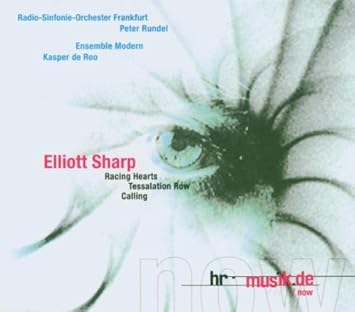
Racing Hearts, Tessalation Row, Calling (2003)
Terraplane – 4AM Always (2014)
Terraplane – Sky Road Songs (2012) with Hubert Sumlin
Terraplane – Forgery (2008)
Terraplane – Secret Life (2005)
Terraplane – Do the Don't (2003) with Hubert Sumlin
Terraplane – Music fr Yellowman (2002)
Terraplane – Blues for Next (2000)
Terraplane (1994)
Reflexions (2010) with Michiyo Yagi
Afiadacampos (2010) with Scott Fields
Protoplasmic (2009) with Boris Savoldelli
Scharfefelder (2008) with Scott Fields
BASE (2008) with Antoine Berthaume
pi:k (2007) with Charlotte Hug
Duo Milano (2007) with Nels Cline
Hums 2 Terre (2007) with Franck Vigroux
Feuchtify (2006) with Reinhold Friedl
Truthtable (1993)
Tocsin (1991)
Sili/contemp/tation (1990)
Datacide (1989)
Monster Curve (1982)
Orchestra Carbon

Radiolaria (2001)
SyndaKit (1999)
Rheo~Umbra (1998)
Spring & Neap (1997)
Abstract Repressionism: 1990–99 (1992)
Larynx (1988, 2007)
String Quartets
Elliott Sharp String Quartets 2002–2007 (2008)
with The Sirius String Quartet
Elliott Sharp String Quartets 1986–1996 (2003)
with Soldier String Quartet and The Meridian Quartet
A Modicum of Passion (2004)
with (vocals) Devorah Day, Ben Miller, Eric Mingus, Joan Wasser;
and (strings) Stephanie Griffin, Conrad Harris, Amy Kimball, Garo Yellin
XenocodeX (1996)
with Soldier String Quartet
Cryptid Fragments (1993)
with Margaret Parkins, Michelle Kinney,
Sara Parkins, and Soldier String Quartet
Twistmap (1991)
with Soldier String Quartet
Hammer, Anvil, Stirrup (1987)
with Soldier String Quartet and Carbon
Orchestral
The Boreal
with JACK Quartet, Jenny Lin, Orchestra Carbon, and Janacek Philharmonic (Starkland, 2015)
with JACK Quartet, Jenny Lin, Orchestra Carbon, and Janacek Philharmonic (Starkland, 2015)
Binibon
(Opera, radio play, produced and directed) (Henceforth, 2010)

Racing Hearts, Tessalation Row, Calling (2003)
Terraplane
Terraplane – 4AM Always (2014)
Terraplane – Sky Road Songs (2012) with Hubert Sumlin
Terraplane – Forgery (2008)
Terraplane – Secret Life (2005)
Terraplane – Do the Don't (2003) with Hubert Sumlin
Terraplane – Music fr Yellowman (2002)
Terraplane – Blues for Next (2000)
Terraplane (1994)
Duos
Reflexions (2010) with Michiyo Yagi
Afiadacampos (2010) with Scott Fields
Protoplasmic (2009) with Boris Savoldelli
Scharfefelder (2008) with Scott Fields
BASE (2008) with Antoine Berthaume
pi:k (2007) with Charlotte Hug
Duo Milano (2007) with Nels Cline
Hums 2 Terre (2007) with Franck Vigroux
Feuchtify (2006) with Reinhold Friedl
Tranz (2006) with Merzbow
Volcanic Island (2005) with Yasuhiro Usui
Tongue (2004) with John Duncan
The Prisoner's Dilemma (2002) with Bobby Previte
Anostalgia (2002) with Reinhold Friedl
High Noon (1999) with Christian Marclay
Rwong Territory (1998) with DJ Soulslinger
Poverty Line (1997) with Ronny Someck
Revenge of the Stuttering Child (1997) with Ronny Someck
Improvisations (1997) with Frances-Marie Uitti
Hoosegow: Mighty (1996) with Queen Esther
Psycho~Acoustic – Blackburst (1996) with Zeena Parkins
Psycho~Acoustic (1994) with Zeena Parkins
In New York (1990) with Bachir Attar
Collaborative Groups
Rwong Territory (1998) with DJ Soulslinger
Poverty Line (1997) with Ronny Someck
Revenge of the Stuttering Child (1997) with Ronny Someck
Improvisations (1997) with Frances-Marie Uitti
Hoosegow: Mighty (1996) with Queen Esther
Psycho~Acoustic – Blackburst (1996) with Zeena Parkins
Psycho~Acoustic (1994) with Zeena Parkins
In New York (1990) with Bachir Attar
Collaborative Groups
Venice, dal vivo (2010)
Elliott Sharp, Joey Baron, Franck Vigroux, Bruno Chevillon
TECK String 4tet (2007)
Carlos Zingaro, Elliott Sharp, Ken Filiano, Tomas Ulrich
In the Tank (2006)
Natsuki Tamura, Elliott Sharp, Takayuki Kato, Satoko Fujii
Beyond (2001)
Joey Baron, Elliott Sharp, Roberto Zorzi
Joey Baron, Elliott Sharp, Roberto Zorzi
GTR OBLQ (1998)
Vernon Reid, Elliott Sharp, David Torn
Downtown Lullaby (1998)
John Zorn, Wayne Horvitz, Elliott Sharp, Bobby Previte
Semantics – Bone of Contention (1987)
Elliott Sharp, Ned Rothenberg, Samm Bennett
As producer
Christian Marclay: Graffiti Composition (Dog W/A Bone, 2010)
PAK: 100% Human Hair (Ra Sounds, 2007)
The Frigg: Frigg: Brecht (Knitting Factory, 1999)
Kazamaki/Laar: Return to Street Level (Ear-Rational, 1990)
Mofungo: Work (SST, 1989)
Ghosts
Ghosts
N.A.D + Sonny Sharrock, Denardo Coleman, Henry Kaiser, Christian Marclay, Fred Frith (Heron, 1989)
Mofungo: Bugged (SST, 1988)
John Zorn: Spy Vs Spy (Nonesuch, 1988)
As a compilation producer
I Never Met a Guitar THREE (Clean Feed, 2015)
I Never Met a Guitar TOO (Clean Feed, 2010)
I Never Met a Guitar TOO (Clean Feed, 2010)
I Never Met a Guitar (Clean Feed, 2010)
Secular Steel (Gaff Music, 2004)
Timebomb: Live at the Clocktower Gallery (P.S.1 Contemporary Art Center, 1997)
State of the Union 2.001 (Electronic Music Foundation, 2001)
State of the Union (Atavistic, 1996)
State of the Union (MuWorks, 1993)
Real Estate (Ear-Rational, 1990)
Island of Sanity (No Man's Land, 1987)
State of the Union (zOaR, 1992)
Peripheral Vision (zOaR, 1982)
Scores
Spectropia Suite (2010)
Score to the sci-fi feature film by Toni Dove
performed by the 31 Band, Sirius String Quartet, and special guest Debbie Harry
Q-Mix (2009)
Soundtrack for the film What Sebastian Dreamt (2005)
Soundtrack for the film Commune (2005)
Suspension of Disbelief (compilation) (2001)
Figure Ground (compilation) (1997)
Photo Kohmura Masao


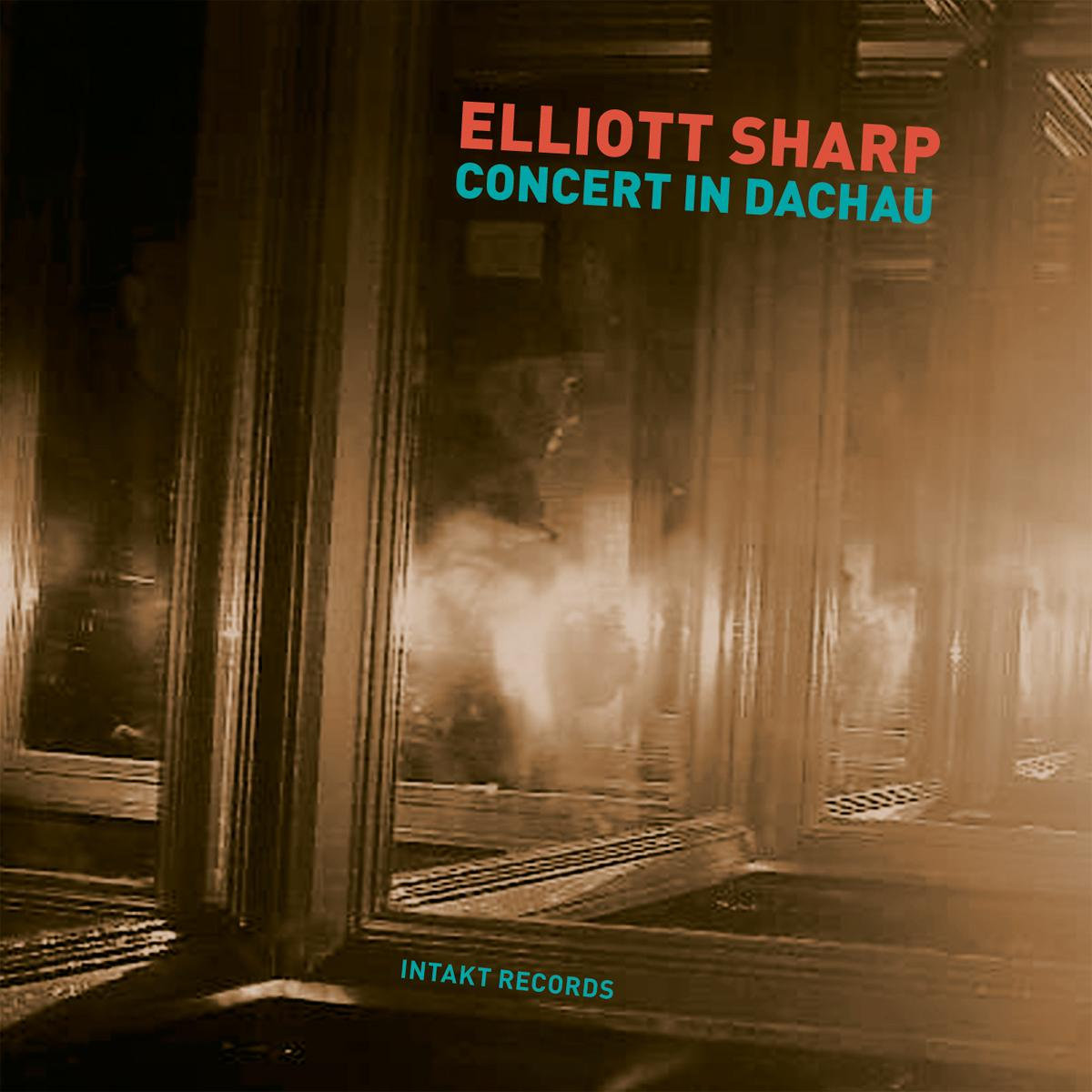



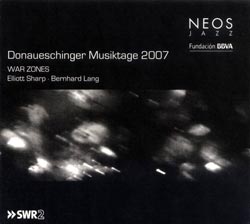
:format(jpeg):mode_rgb()/discogs-images/R-2377118-1280469805.jpeg.jpg)

:format(jpeg):mode_rgb():quality(96)/discogs-images/R-781242-1210250407.jpeg.jpg)


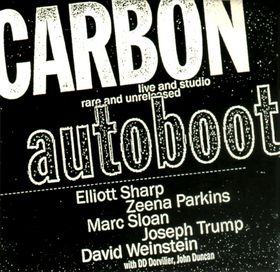











:format(jpeg):mode_rgb()/discogs-images/R-778656-1325087966.jpeg.jpg)


:format(jpeg):mode_rgb()/discogs-images/R-1523545-1292777553.jpeg.jpg)

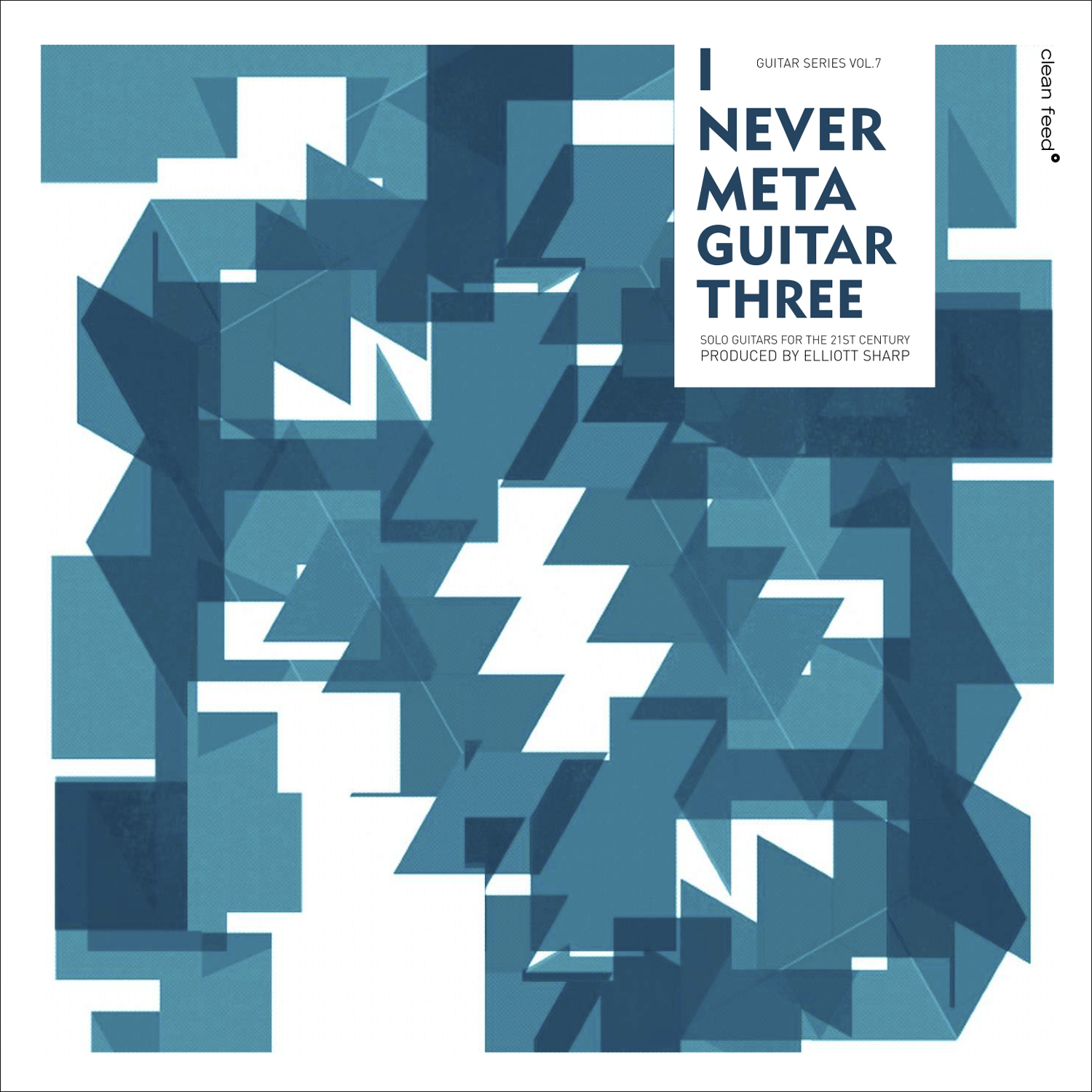
:format(jpeg):mode_rgb():quality(96)/discogs-images/R-1112328-1392094388-5650.jpeg.jpg)
:format(jpeg):mode_rgb():quality(96)/discogs-images/R-1171248-1286383222.jpeg.jpg)


